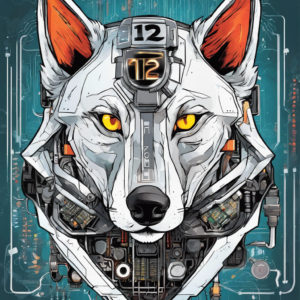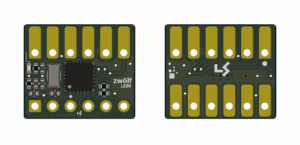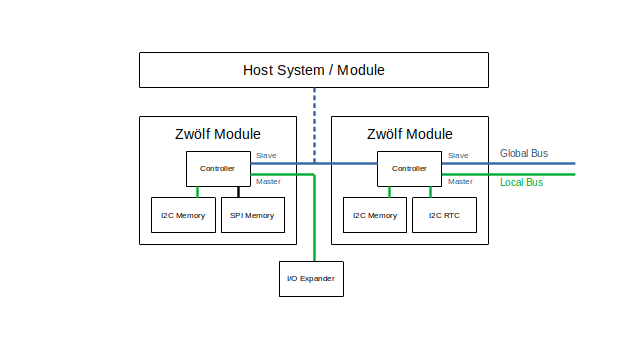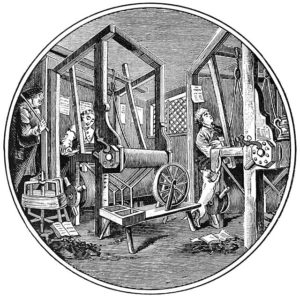 Zwölf is an open microcontroller platform for simple embedded applications that require long-term data retention and/or long-term functionality.
Zwölf is an open microcontroller platform for simple embedded applications that require long-term data retention and/or long-term functionality.
Zwölf modules are available in a versatile package that can be soldered surface mount, through-hole (DIP-12) or used as a removable module with a DIP socket or spring contacts. The modules are also compatible with 6-pin PMOD sockets.

While the modules are built with a variety of MCUs, FPGAs and memories from various vendors, each module is partially pin-compatible and implements the same code-compatible stack-based CPU and a common interface for control and programming.

Zwölf is still under development, for more information please contact us or join the discussion on our BBS.
Tools
- Spielplatz is a evaluation/development board.
- Wolfsjunge is a minimal controller/programmer.
- Wolfshöhle is a minimal breakout/host board with 16 digital GPIOs.
- Tunken is a 12-pin DIP to spring socket adapter.
- Wolfszahn is a 6-pin SIP to spring socket adapter.
- Wolfsfeld is a stand-alone FPGA-based handheld computer that can emulate and program Zwölf modules.
Resources
Zwölf Family Roadmap
| Device | Controller | Memory | Potential Lifespan¹ | Data Retention | Cost |
| LS0x | MCU | OTP + EEPROM | 5+ years | 100-200 years | Low |
| LS1x | MCU | Flash + FRAM | 5-20 years | 200 years | Higher |
| LS2x | FPGA | Flash + FRAM | 20-100 years | 200 years | Highest |
| LS3x | MCU | FRAM | 100 years | 200 years | Higher |
| LS5x | Custom silicon | FRAM/EEPROM | 100 years | 100-200 years | Low |
¹ Potential lifespan is an estimate of how long the device could potentially operate under ideal conditions.

 In order to make our products more available and affordable we’ve begun to experiment with outsourcing the assembly of certain PCBs.
In order to make our products more available and affordable we’ve begun to experiment with outsourcing the assembly of certain PCBs. We decided earlier this year to temporarily slow down PCB design and production in order to build a pick-and-place machine. Manual PCB assembly can be a tedious, repetitive, time-consuming and sometimes stressful process and we were spending most of our time assembling boards. We determined that at least partially automating the assembly process was the only sustainable way to continue producing products ourselves.
We decided earlier this year to temporarily slow down PCB design and production in order to build a pick-and-place machine. Manual PCB assembly can be a tedious, repetitive, time-consuming and sometimes stressful process and we were spending most of our time assembling boards. We determined that at least partially automating the assembly process was the only sustainable way to continue producing products ourselves.